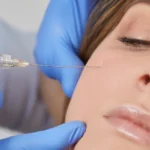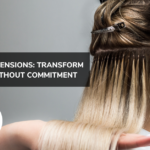Acne is a common skin condition that can affect individuals in any stage of life. It is often associated with hormonal changes but can also arise from several other factors, including genetics, skin care routines, environmental influences, and lifestyle habits. While many people think acne is exclusive to teenagers, it can persist or even appear for the first time in adulthood.
What Causes Acne?
Acne develops when hair follicles become clogged with oil, dead skin cells, and bacteria. This blockage can often lead to whiteheads, blackheads, pimples, or cysts. Factors contributing to acne include:
- Hormonal Changes: Hormonal fluctuations during puberty, pregnancy, and menopause can increase oil production in the skin, making symptoms worse.
- Diet and Lifestyle: Certain diets high in sugar and dairy can contribute, while stress levels may worsen its severity.
- Genetics: If one or both parents experienced acne, their children are more likely to develop it.
- Skin Care Products: Using pore-clogging products or over-washing the skin can aggravate the condition.
Understanding the underlying causes and having a tailored treatment approach becomes more effective across different stages of life.
During Adolescence
Acne most commonly begins during puberty. Hormonal surges associated with this stage in life stimulate the sebaceous glands, increasing oil production. This often leads to breakouts concentrated on the face, shoulders, chest, and back. Early treatment is key in addressing active breakouts and minimizing potential scarring. Treatments for adolescents often involve over-the-counter topicals and prescription medications.
Adulthood
Acne isn’t exclusive to teenagers. It’s common for individuals to experience it well into their adult years, often referred to as adult-onset. Hormonal fluctuations during menstrual cycles, pregnancy, or menopause can trigger breakouts. Stress and environmental factors can also play a significant role.
Treatment for adults may involve:
- Hormonal Therapies: Options such as oral contraceptives or treatments targeting androgen production can address hormone-driven issues.
- Medical-grade Products: Dermatologists may recommend specialized topical treatments containing retinol or azelaic acid for their skin-renewing and anti-inflammatory properties.
- Lifestyle Adjustments: Identifying and modifying habits, such as diet or stress management techniques, can improve acne management.
Beyond Hormonal Causes
Not all acne is hormonal. Other factors may mimic traditional symptoms while requiring alternative treatments. For instance, makeup or grooming products that clog pores can cause breakouts, often referred to as “acne cosmetica.” Additionally, certain medications can result in flare-ups.
Combination Treatments
For individuals experiencing chronic or severe acne that does not respond to standard treatments, combining therapies can often be an effective next step. Options may include procedures such as chemical peels, laser/light therapy, and microneedling, antibiotics or other oral medications, or a skin care plan created by a dermatologist tailored to your individual skin type and concerns.
Finding the Right Approach for You
Acne treatments vary, and individuals should avoid a one-size-fits-all approach. From over-the-counter products to prescription medications and advanced dermatological procedures, numerous options exist to manage acne effectively. Building a routine with personalized solutions not only addresses active acne but can also prevent potential scarring and improve overall skin texture.







